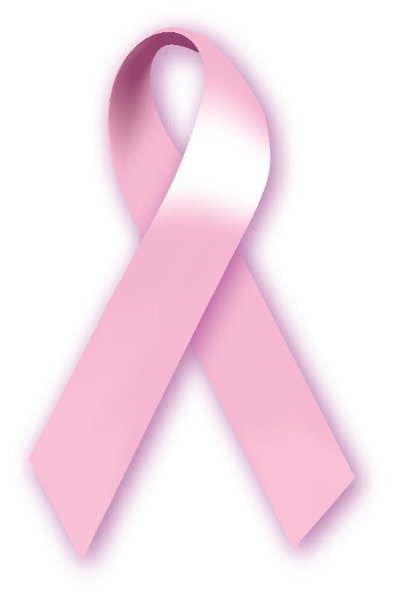Breast cancer is the most common cancer in women. According to current information, one in every eight to nine women will get breast cancer at some point in their life.

PREVENTION AND EARLY DIAGNOSIS METHODS FOR BREAST CANCER
“What is the most common cancer in women?
Breast cancer is the most common cancer in women. According to current information, one in every eight to nine women is expected to have breast cancer at some point in their lives.
Is breast cancer frequency related to age?
Although breast cancer is a cancer that becomes more common with age, it can also occur at a young age.
What factors increase the risk of breast cancer?
Factors that increase the risk of developing breast cancer according to current information include:
- Long-term hormone therapy, use of birth control pills,
- Early onset of menstruation (before the age of 12),
- Late onset of menopause (over the age of 50),
- Exposure to radiation,
- Family history of breast cancer (first-degree relatives such as mother and sisters),
- Lack of physical activity, obesity,
- Not having given birth,
- Not breastfeeding,
- Use of birth control pills,
- Carrying the BRCA gene,
- Smoking (recent studies show publications indicating the relationship between nicotine receptors and breast cancer).
Are there foods directly related to breast cancer?
- Consuming processed foods grouped as prepared foods prepared with burned fats, foods prepared with burned, smoked, and salty preserves,
- Eating fried and grilled foods prepared at high temperatures (preferably choosing foods prepared with low-temperature baking and boiling methods instead of these cooking methods),
- Eating sugary foods, using artificial sweeteners such as NutraSweet, Equal, Spoonful (it is recommended to use natural honey as a sweetener instead of these sweeteners),
- Using table salts containing bleaching chemicals (it is recommended to use sea salt instead of these types of salts), eating foods containing nitrite and nitrate salts, colorings, and artificial antioxidants,
- Eating acid diets based on red meat (it is recommended to prefer plenty of fish and less chicken instead of red meat),
- Using plastic containers in microwave ovens, using pet bottles as storage containers in the freezer (using plastic materials in this way can cause the release of the dioxin substance, and dioxins can cause cancer, especially breast cancer),
- Staying away from high-caffeine drinks (choosing green tea from the tea group),
- Drinking tap water containing toxins and heavy metals (filtered or purified water should be consumed instead of these waters) increase the risk of breast cancer.
Is early diagnosis important?
In today’s world, reaching the point where breast cancer is no longer a fatal disease by starting early diagnosis and early treatment has been achieved.
What should we do for early diagnosis?
To be able to detect breast cancer early, women should learn to perform breast self-examinations regularly after the age of 20. If a lump is felt, nipple discharge, pulling in the nipple, redness in the breast skin, an unhealed sore, or any noticeable changes are observed during this examination, it is recommended to see a specialist doctor immediately for an examination.
Screening for breast cancer by mammography for women aged 40 and over is accepted as the most effective examination, and it is recommended for those with a family history of breast cancer to have annual mammograms from the age of 32 (some sources recommend from the age of 35). For those under the age of forty, breast ultrasound should be the annual radiological examination to be performed in suspected cases.
What should we pay attention to for protection from breast cancer?
- Performing monthly breast self-examinations,
- Engaging in regular exercise to avoid gaining excess weight (at least three days a week for half an hour),
- Maintaining a healthy weight by eating low-fat foods from animal fats,
- Consuming less than 20% of daily calories from fats, eating a diet rich in vegetables and fruits, known to prevent the risk of breast cancer and recurrence in breast cancer patients.
Are there foods that are protective against breast cancer?
- Consuming fresh vegetables and fruits known to be rich in vitamins A and C (such as carrots, broccoli, apricots, citrus fruits) in 3-4 servings of fruit and 2-3 servings of vegetables per day (the diet should be organized as 80% fresh vegetables and fruits, whole grains, seeds, and a little fruit, and the remaining 20% should consist of cooked foods containing legumes three times a week),
- Consuming dairy products containing vitamin D (especially known to reduce the risk of breast cancer in postmenopausal women),
- Regularly consuming foods containing vitamin E such as walnuts and hazelnuts, and consuming dairy products containing probiotics,
- Choosing known healthy olive oil (provided it is not consumed excessively),
- Including foods containing sulfur compounds (such as garlic, onions) in the diet,
- Giving more place to fish products containing omega-3 fatty acids in the diet,
- Consuming a diet rich in fiber, consuming whole-grain breads (whole wheat, rye) instead of carbohydrates (pastries, rice, etc.), can help prevent breast cancer.
Research on the relationships between cancer and diet continues today, and staying at a healthy weight, consuming less than 20% of daily calories from fats, eating a diet rich in vegetables and fruits, known to prevent the risk of breast cancer and recurrence in breast cancer patients.
Cancer is a mental, physical, and spiritual disease. Cancer cells cannot thrive in an oxygenated environment. Oxygen therapy provided by regular daily exercises and deep breathing techniques is another method to destroy cancer cells.
A predictive and positive spirit succeeds in the fight against cancer, while irritability, unforgiveness, and pain put the body in a stressful and acidic environment, causing the battle against cancer to be lost.”

